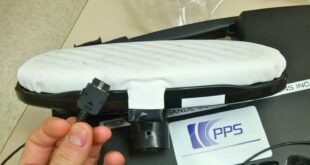Diodes Incorporated has further strengthened its range of PCIe solutions with the addition of a new high-speed data rate ReDriver device. The DIODES PI2EQX16924 is the industry’s first available PCIe 4.0 ReDriver that operates from a 1.8V voltage rail, where competing solutions have to use a 3.3V rail. It addresses a broad variety of computing and data communication applications.
The PI2EQX16924 only consumes 288mW and 27mW respectively when in active and low-power modes, particularly important for saving battery charge in portable applications.
The device features four differential channels that are independently configurable in terms of receiver equalisation and flat gain. This mitigates inter-symbol interference and allows signal loss compensation, so that longer PCB trace lengths can be achieved. As the I2C interface is used for such configuration work, firmware requirements are minimal.
The PI2EQX16924 is capable of handling data rates up to 16Gbps. The device is compliant with PCIe 4.0 and backwards compatible with PCIe 1.0, 2.0 and 3.0 generations. An industrial temperature range from -40°C to 85°C is supported.
 Engineer News Network The ultimate online news and information resource for today’s engineer
Engineer News Network The ultimate online news and information resource for today’s engineer





